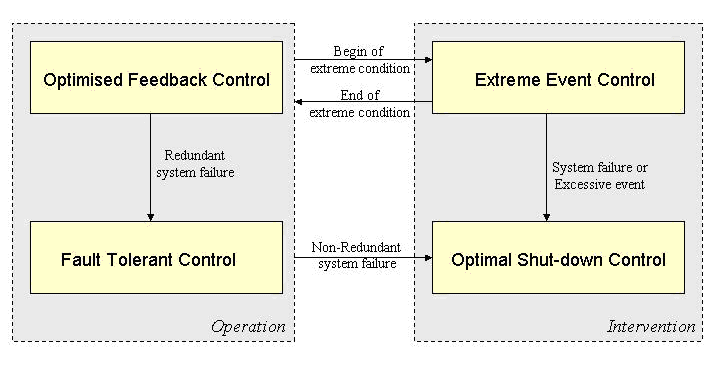Sustainable Control - A new approach to operate wind turbines
Problem and project objective:
The main problem is founded in the costs and the guarantee of production of offshore wind energy. This is mainly due to low availability at offshore locations. It implies also the need of further up scaling of offshore turbines towards 10MW, which requires considerably reductions of turbine loads. The preservation of stability will become more complex, due to nearer coming system resonances within the excitation range of wind and waves. These problems are mainly due to the current state-of-the-art of wind turbine management strategies.
Within the scope of wind turbine management, the objective of this project is defined as finding control methods that contribute significantly to the solution of the following specific problems:
1. unnecessarily turbine standstill due to 'isolated turbine control approach';
2. high costs and upscale limitation due to high turbine loads and stability problems;
3. production uncertainty and high loads during extreme (weather) conditions;
4. serial damages during shut-down after serious failure detection.
This objective can be realized by the development of the integral approach to manage offshore wind turbines: 'Sustainable Control'. This approach distinguishes four parts, which will be made available as methods if the project has been finished:
1. 'Optimised Feedback Control (OFC)', to reduce turbine costs and contribution to further up-scaling of wind turbines by reduction of turbine loads when operating within the design range; 2. 'Fault Tolerant Control (FTC)', to avoid unnecessary standstill by the integration of self-adapting control configuration- and detection methods to component degradation;
3. 'Extreme Event Control (EEC)', for the reduction of turbine costs and to improve the certainty of power production by decreasing turbine loads during extreme conditions;
4. 'Optimal Shutdown Control (OSC)', to avoid serial damages during shut-down after serious failures by condition specific control towards standstill.
The figure below shows a top-level visualisation of 'Sustainable Control':

Due to research and development of 'Sustainable Control', it is expected that the costs of offshore wind energy conversion will decrease about 16%. (improved availability: 11%, turbine load reduction: 2.5% and less urgent maintenance 2.5%). This implies an avoidance of about 8.2PJ/yr in 2020 of primary energy as far as offshore wind energy conversion for the Netherlands.
The project consortium consists of six partners:
- Energy research Centre of the Netherlands (The Netherlands)
- Delft University of Technology (The Netherlands)
- Garrad Hassan & Partners, Ltd (UK)
- Nordex Energy, GmbH (Germany)
- Ecotècnia, s.coop.c.l.(Spain)
- Mitsubishi Heavy Industries, Ltd(Japan)